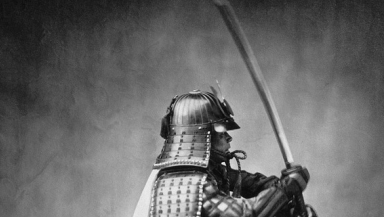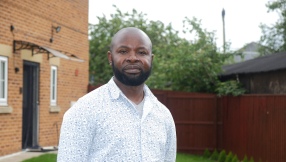
A Japanese Christian samurai who died in exile around 400 years ago after giving up his status to follow Jesus was beatified by the Catholic Church in an elaborate mass yesterday.
About 12,000 people attended the ceremony – a step towards being made a saint – for Justo Takayama Ukon (1552-1615) in Osaka, which was conducted by Cardinal Angelo Amato, representing Pope Francis.
Pope Francis signed a decree for the beatification for Ukon, known as the 'Samurai of Christ', in January last year and the Japanese have been preparing for the event since then.
Born into a family of landowners, Ukon converted to Christianity at the age of 12 after coming into contact with Jesuit missionaries.
When shogun Toyotomi Hideyoshi took power and banned the practice of Christianity, Ukon refused to follow the great feudal lords. As a result, he lost his properties, his position and his social status and was eventually forced into exile.
With 300 other Japanese Christians he fled to Manila where, just 40 days after his arrival, he fell ill and died on 4th February, 1615.
The Japanese faithful proclaimed Ukon's sanctity in the 17th century, but the isolationist policy of the country prevented the canonical investigators from collecting evidence in order to certify his holiness.
The Japanese bishops took up the cause in 1965.
The ceremony comes after the international release of the Martin Scorsese film Silence, which tells the story of Christian martyrs in Japan in the 16th century. The movie is based on the 1966 novel by Shūsaku Endō.
Christianity came to Japan in 1549, introduced by Jesuit missionary Francis Xavier, and for decades the faith made dramatic inroads before coming under official persecution in the late 16th and 17th centuries, forcing it underground.
The popularity of Christianity spread and there were an estimated 220,000 to 300,000 followers in Japan in the early 1600s out of a population of 15-20 million.
But powerful warlords with national influence, who were fearful after the Spanish takeover of the Philippines, began to fear the foreign faith and efforts to eradicate it began in 1587.
Today, it is estimated that less than one per cent of the population is Christian.













